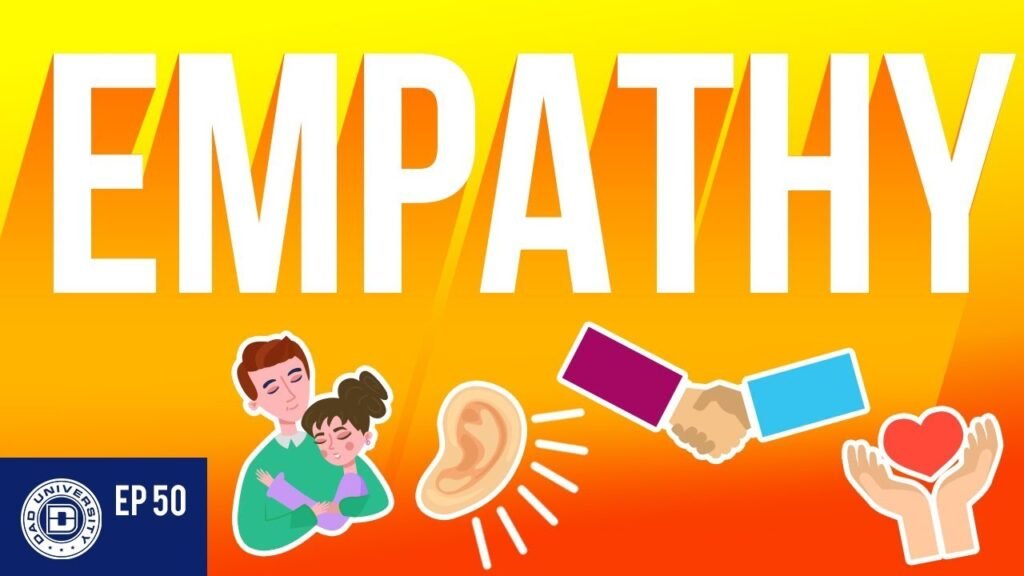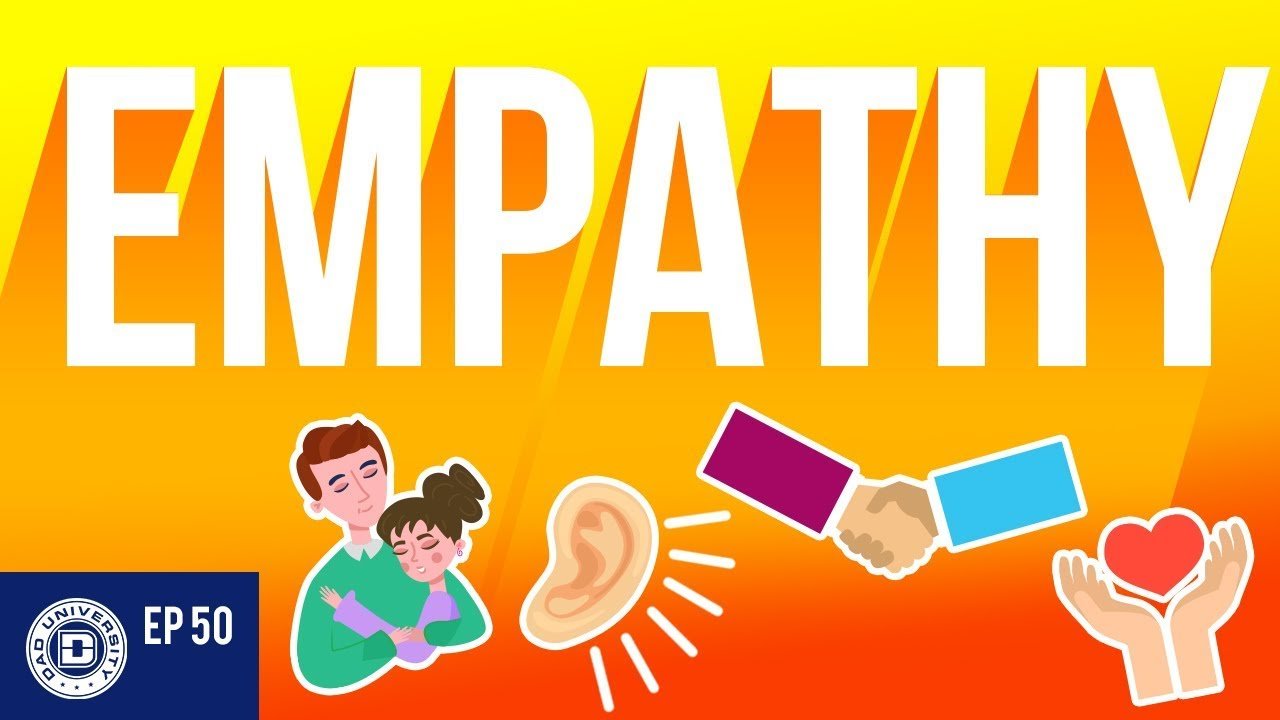Empathy is a powerful tool that can transform our relationships with our children, spouses, friends, and co-workers. In a world where we often jump to offering solutions or opinions, taking the time to listen and understand someone’s perspective can truly make a difference. By putting yourself in someone else’s shoes, you can connect on a deeper level and foster stronger, more meaningful relationships.
Practicing empathy, genuine understanding, and non-judgment can lead to profound improvements in all areas of your life. Whether it’s helping your child find their lost shoes or supporting your spouse through a difficult time, empathy allows for authentic connections and emotional support. By embracing empathy, you can create a more compassionate and harmonious environment in all your relationships.
Understanding Empathy
Empathy is the ability to understand and share the feelings of another person. It involves putting yourself in someone else’s shoes and truly feeling and comprehending their perspective. It goes beyond sympathy, which often entails feeling pity or sorrow for someone. Empathy is about fostering deeper connections and relationships by acknowledging and validating the emotions of others.
Difference between empathy and sympathy
While empathy involves understanding and sharing someone’s feelings, sympathy typically centers around feeling sorry for someone. Empathy requires actively engaging with the emotions of another person, while sympathy may involve offering comfort or support from a place of emotional distance.
Benefits of Empathy
Practicing empathy can bring a multitude of benefits to all aspects of your life, from personal relationships to professional interactions. By cultivating empathy, you can:
Creates stronger connections
Empathy fosters stronger connections with others by showing them that you understand and care about their feelings. It builds trust and intimacy in relationships, leading to deeper emotional bonds.
Improves relationships with children
Empathy is particularly essential in parenting, as it helps parents connect with their children on an emotional level. Understanding a child’s perspective and feelings can lead to better communication and a more supportive relationship.
Enhances relationships with spouse
In romantic relationships, empathy plays a crucial role in offering support and understanding to your partner. Acknowledging your partner’s emotions without judgment can strengthen the bond between partners and foster a more loving and compassionate relationship.
Strengthens friendships
Empathy is key to maintaining strong and meaningful friendships. By being present and supportive in times of need, you can demonstrate to your friends that you value their emotions and experiences, leading to a more fulfilling and supportive friendship.
Improves relationships with co-workers
In the workplace, empathy can enhance team dynamics and collaboration. Understanding and empathizing with your colleagues can improve communication, build trust, and create a more positive work environment.
Story of Empathy in Action
Jason’s experience with his daughter and her shoes
Jason shares a personal anecdote about a situation with his daughter where he failed to use empathy. When his daughter couldn’t find her favorite shoes, he initially responded with frustration and insensitivity. However, upon reflection, Jason realized the importance of empathy in this situation.
Impact of using empathy in the situation
By practicing empathy in a similar scenario with his daughter, Jason was able to connect with her emotions and offer understanding. This led to a more positive outcome, as his daughter felt supported and reassured, resulting in a calmer and happier interaction between them.

Empathy in Parenting
Taking the child’s perspective
Empathy is crucial in parenting to connect with your child’s emotions and experiences. By taking your child’s perspective, you can validate their feelings and build a more trusting and supportive relationship.
Listening and understanding before reacting
When faced with challenging situations or emotional outbursts from your child, it’s essential to listen and understand their perspective before reacting. By practicing empathy, you can respond with compassion and support, fostering a healthier parent-child dynamic.
Empathy in Romantic Relationships
Acknowledging partner’s feelings
In romantic relationships, empathy involves acknowledging and validating your partner’s emotions. By actively listening and understanding their feelings, you can create a more compassionate and loving connection with your significant other.
Offering support and understanding without judgment
Empathy in romantic relationships entails offering support and understanding without passing judgment. By showing empathy towards your partner, you can build trust, intimacy, and a deeper emotional bond in your relationship.
Empathy in Friendships
Connecting on an emotional level
Friendships thrive on emotional connection and support. By practicing empathy, you can strengthen your friendships by showing understanding, compassion, and empathy towards your friends’ experiences and emotions.
Being present and supportive in times of need
During challenging times or moments of distress, being present and supportive for your friends can make a significant difference. Empathy allows you to offer comfort, validation, and understanding, strengthening the bonds of friendship.
Empathy in the Workplace
Improving team dynamics through empathy
Empathy in the workplace can enhance team dynamics by promoting understanding, collaboration, and communication among colleagues. By empathizing with your co-workers, you can create a more supportive and positive work environment.
Enhancing communication and collaboration
Empathy contributes to improved communication and collaboration in the workplace. By understanding your colleagues’ perspectives and emotions, you can foster a culture of empathy, trust, and mutual respect, leading to more effective teamwork.
Tips for Practicing Empathy
Being genuine in your empathy
Authenticity is key when practicing empathy. To truly connect with others, it’s essential to genuinely understand and validate their feelings, demonstrating sincerity and compassion in your interactions.
Avoiding judgment and offering understanding
Empathy involves withholding judgment and offering understanding without criticism. By showing empathy towards others, you create a safe space for open communication and emotional support.
Verbalizing your empathy and connection with others
Expressing your empathy verbally can reinforce your emotional connection with others. By articulating your understanding and support, you can enhance communication and validate the feelings and experiences of those around you.
Empathy vs Sympathy
Understanding the difference in emotional responses
While empathy involves sharing and understanding someone’s feelings, sympathy typically entails offering comfort or pity from a distance. Empathy requires actively engaging with another person’s emotions, while sympathy may involve passive acknowledgment.
Why empathy is more effective in building relationships
Empathy is more effective in building relationships as it creates deeper emotional connections and fosters understanding and support. By practicing empathy, you can demonstrate genuine care, compassion, and support, leading to stronger and more meaningful relationships.
Conclusion
In conclusion, empathy is a powerful tool that can transform all relationships, from parenting and romantic partnerships to friendships and professional interactions. By cultivating empathy, you can create stronger connections, enhance communication, and foster understanding and support in all areas of your life. Practice empathy with sincerity, avoid judgment, and verbalize your understanding to build deeper and more meaningful relationships with those around you. Embrace empathy as a cornerstone of every relationship, and you will see the positive impact it has on your interactions, connections, and overall well-being.

